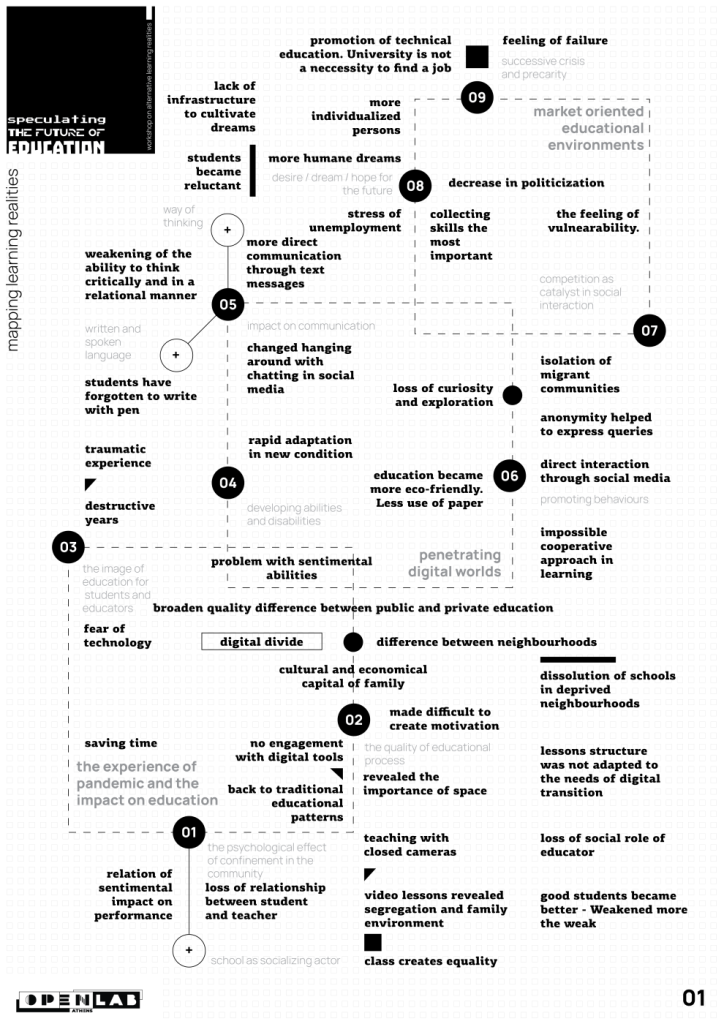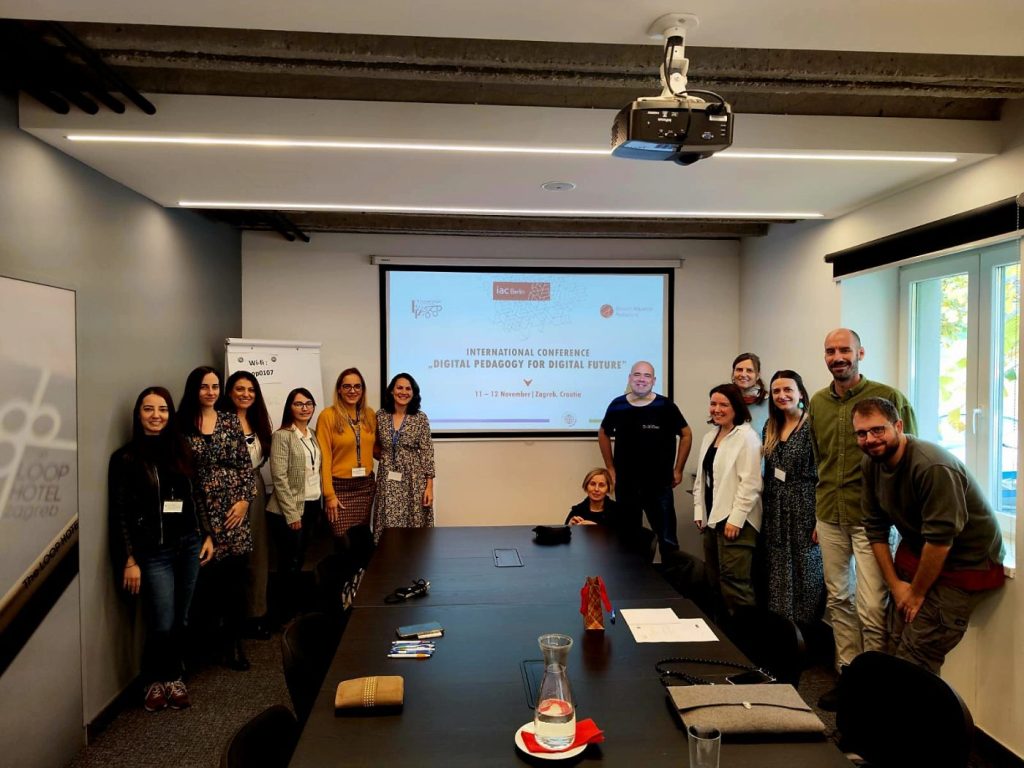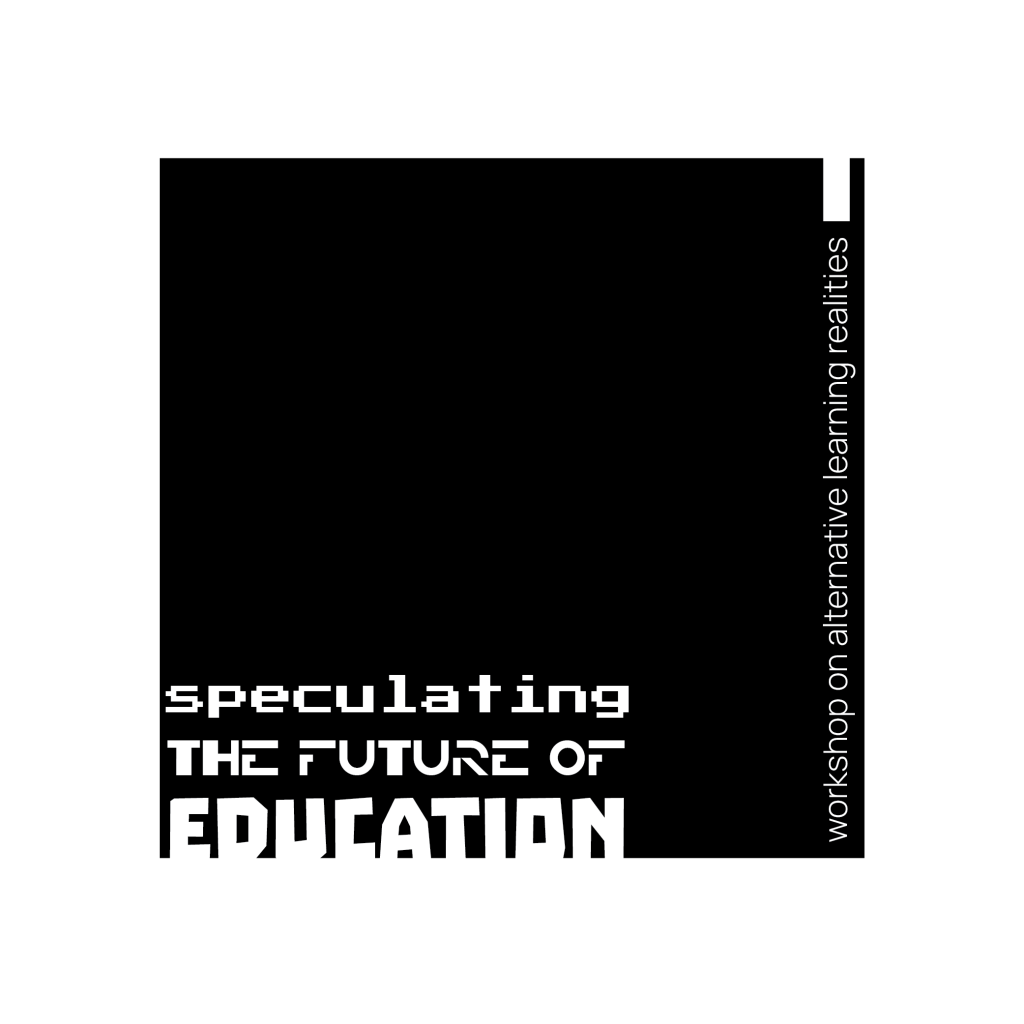education | sci-fi prototyping | mental mapping | participatory workshop
Utopia is not a perfect reality, utopia is a process. It is about concern, adaptation, learning and progress.
Ursula Le Guin
Since the birth of civilization and the formation of society, discussions about the future have always been enchanting people. Societies have been developing different types of discourse, either as a divine prophecy or as a calculated prediction of what is going to come, by staring at the flames of a fire or the stars; by observing the behavior of animals or people; by investigating ways of escaping from the contemporary reality.
Today and for several centuries back, thinking about what is to come, constitutes a particular genre of art and of literature and cinema. Science-fiction and the dystopias or utopias that it forms have as their primary focus signs or elements of our present, which are projected into the future helping us rethink our lived realities. The experience of an alternative world can create a vital field of critique over social phenomena. It can develop a space of discussion open to not-yet-imagined opportunities and create the possibility for new ways of life to emerge.

Data mapping of the first part of the workshop [22.10.2022 | Athens,Greece]
The participatory workshop Speculating the future of education.Workshop on alternative learning realities, investigates the aforementioned assumption and focuses on nowadays conditions of education. The workshop is structured in two different parts – each one conducted with different participants – and attempts to create a trajectory of thought between people working in diverse environments and levels of education. The first part of the workshop took place on the 22nd of October in Athens with teachers working in formal and informal education. The main theme was the contemporary challenges that education faces. The conversation, which was conducted in a focus group format, covered the 3 following aspects: the experience of distant learning during the pandemic, the penetrating digital worlds, and the market-oriented educational environments. The second part took place on the 11th of November in Zagreb, during the International Conference Digital Pedagogy for Digital Future, with the participation of academics and researchers. Based on an introductory discussion and reflections on the material created in the first part, participants created narratives about alternative futures of education. Through dystopian and utopian scenarios of a future society, they co-imagined where the transformation of learning has ended up, how the future school looks like, how important is the role of the educator and how a learning environment is structured in these new worlds.

Participants of the second part of the workshop. [11.11.2022 | Zagreb, Croatia]
